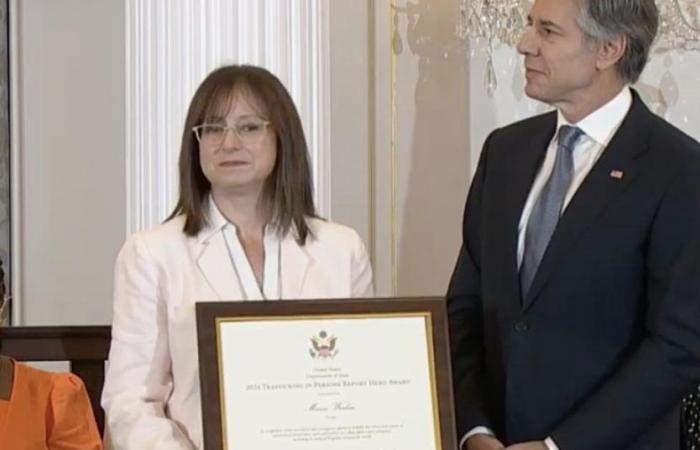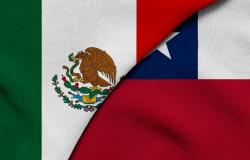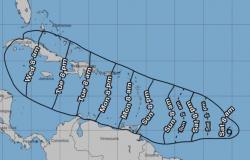Madrid/María Werlau (Havana, 1959) says she felt “surprised and moved” to learn that the United States named her one of the ten “heroes” in the fight against human trafficking, whose 2024 report was presented by the State Department on Monday. She herself then collected the award, granted, as read by US official Cindy Dyer, “in recognition of her constant and courageous efforts to amplify the voices and stories of survivors of forced labor and exploitation in Cuba’s services export program. including its medical brigades.”
“I do this work out of love and moral commitment, without fanfare, I am not concerned with payments, thanks or recognition, much less thinking about awards, so knowing that the work is taken into account comforts and stimulates,” the activist responded to the questions. of this diary.
Founder and director of Archivo Cuba, she has been dedicated to safeguarding the memory of the atrocities committed by the Cuban regime for more than a quarter of a century. Thus, not only has she endeavored to compile all the information regarding the missions Cuban international workers – classified for years by different organizations as forced labor – but, for example, the names of those who have died as a direct result of the State.
The most frustrating thing about his work over the years, he says, has been the “lack of resources and time to do more for victims and survivors.” Of all the victims he has documented, he does not mention any in particular: “They all impact me and each one is the most important when you work with it, or think about the consequences.” Of course, he points out, “some atrocities with premeditation and treachery are almost incomprehensible.”
“The dictatorship has had more than six decades with all the resources of the totalitarian State for propaganda, diplomacy, international influence”
She who collects data and facts that should be incontrovertible, why do you think that, despite them, the Cuban Revolution continues to have such good press? “I work a lot researching that topic,” she answers. “The dictatorship has had more than six decades with all the resources of the totalitarian State for propaganda, diplomacy, international influence, and its priority is to use it to stay in power at all costs.”
That despite her efforts and having worked for so many years, nothing has substantially changed is something that frustrates and hurts her, but also encourages her to continue: “There is too much human suffering involved. Human beings deserve their freedoms. We can never accept the violence and repression with which the Cuban dictatorship abuses people.”
She says this with full knowledge of the facts, for reasons very close to home. Her father, Armando Cañizares Gamboa, who had fought in the Sierra Maestra on the side of the rebel army and worked at the Sugar Institute, quickly realised the twisted direction the Revolution was taking and, after going into exile, was part of Brigade 2506 that attacked Playa Girón in 1961. There he died from gunshots, but his wife, as María Werlau herself has said, did not find out until much later, when she saw a magazine in a doctor’s office: “There was a photo of a dead brigade member. And it was my father.”
The double struggle of its progenitor is, in a certain sense, that of Archivo Cuba, which not only documents the dead of Castroism but also those of Fulgencio Batista. Almost 12,000 victims, for different reasons, are compiled in its database from March 1952 to date.
Oblivious to the name of Werlau, President Miguel Díaz-Canel was quick to criticize the report prepared by the United States, which in the Cuban case points to the international brigades, calling it “manipulative.”
In its report, Washington considers that Cuba, Venezuela and Nicaragua are among the countries with the greatest existence of human trafficking, since they do not meet the minimum standards nor make significant efforts to eliminate them.






